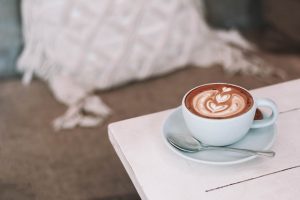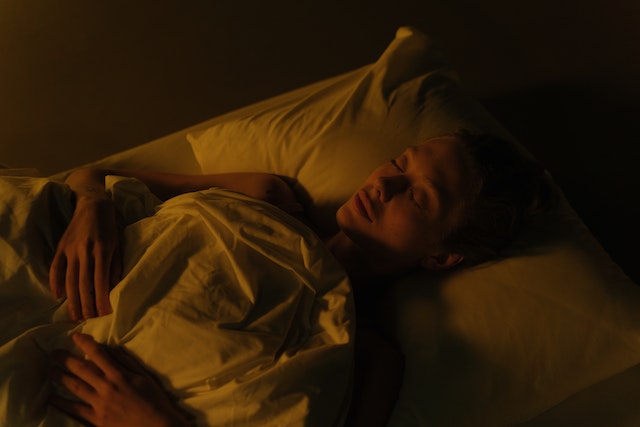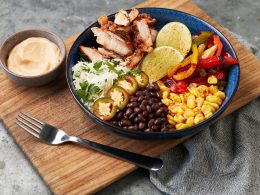Late-night cravings can be irresistible, but indulging in the wrong foods before bedtime can disrupt your sleep and leave you feeling groggy the next morning. In this article, we’ll explore the top culprits that disrupt your sleep when consumed before bedtime and provide alternatives that promote a restful night’s sleep.
The Connection Between Food and Sleep
Before we dive into the worst foods for sleep, it’s essential to understand the relationship between food and sleep. What you eat can have a significant impact on your sleep quality. Some foods contain substances that can either promote or hinder sleep. For example:
- Tryptophan: This amino acid is found in some foods and is a precursor to serotonin and melatonin, two hormones that regulate sleep. Foods rich in tryptophan, like turkey and bananas, can potentially improve sleep quality.
- Tyrosine: This amino acid can stimulate the production of norepinephrine, a neurotransmitter that can lead to increased alertness and disrupted sleep. Tyrosine is found in foods like cheese and cured meats.
- Caffeine: A well-known stimulant, caffeine can keep you awake and alert. It’s found in coffee, tea, chocolate, and many soft drinks.
- Sugar: High-sugar foods and drinks can cause blood sugar spikes and crashes, leading to nighttime awakenings.

https://images.pexels.com/photos/2836945/pexels-photo-2836945.jpeg?auto=compress&cs=tinysrgb&w=1260&h=750&dpr=1
The Worst Foods for Sleep
- Caffeinated Beverages: Coffee, tea, and energy drinks are obvious sleep disruptors due to their caffeine content. Avoid consuming caffeine within several hours of bedtime to allow its effects to wear off.
- Alcohol: While alcohol can initially make you feel drowsy, it disrupts the second half of your sleep cycle, leading to less restorative sleep. It’s best to limit alcohol consumption, especially in the evening.
- Spicy Foods: Spicy foods can cause heartburn and indigestion, which can be uncomfortable and lead to disrupted sleep. Avoid spicy dishes, particularly close to bedtime.
- Fatty and Fried Foods: High-fat foods can be difficult to digest and may cause discomfort. Avoid fried foods and heavy, greasy meals late in the evening.
- Tyramine-Rich Foods: Tyramine, found in aged and fermented foods like cheese, certain meats, and soy sauce, can trigger the release of norepinephrine, a stimulating neurotransmitter.
- High-Sugar Foods: Foods and drinks with high sugar content can cause blood sugar fluctuations, leading to wakefulness during the night. This includes sugary cereals, pastries, and sweetened beverages.
- Dark Chocolate: While it has numerous health benefits, dark chocolate contains caffeine and can be stimulating. If you’re a chocolate lover, opt for a small piece earlier in the evening.
Better Alternatives for a Restful Night’s Sleep
Now that we’ve identified the worst foods for sleep, let’s explore better alternatives to satisfy your late-night cravings while promoting a restful night’s sleep:
- Herbal Tea: Opt for caffeine-free herbal teas like chamomile or valerian root. These herbal infusions can have a calming effect and help prepare your body for sleep.
- Low-Fat Greek Yogurt: If you’re craving a snack, a small serving of low-fat Greek yogurt can provide protein and tryptophan, which can promote sleep. Add a drizzle of honey for a touch of natural sweetness.
- Oatmeal: A small bowl of oatmeal can be a comforting and sleep-promoting choice. Oats contain complex carbohydrates, which can help regulate blood sugar levels.
- Almonds: A handful of almonds can provide a source of magnesium, which is associated with improved sleep quality. Almonds also contain tryptophan.
- Bananas: A banana is a natural source of tryptophan and contains magnesium and potassium, which can help relax your muscles.
- Warm Milk: Warm milk is a classic bedtime beverage that can have a calming effect. It contains tryptophan and is associated with promoting relaxation.
- Whole-Grain Crackers: If you’re in the mood for something crunchy, whole-grain crackers can be a better option than chips. They provide complex carbohydrates, which can help regulate blood sugar.
- Sliced Turkey: If you’re looking for a protein-rich snack, a few slices of turkey can provide tryptophan without the high-fat content of some meats.
The Importance of Timing
In addition to choosing sleep-friendly foods, the timing of your late-night snack is crucial. Aim to eat at least two to three hours before bedtime to allow for digestion. Consuming large meals or heavy snacks right before bed can lead to discomfort and disrupted sleep.

In Conclusion
Late-night indulgences can be hard to resist, but making the right choices can make a significant difference in your sleep quality. Avoid caffeine, alcohol, spicy and high-fat foods, and opt for sleep-friendly alternatives like herbal tea, yogurt, or bananas. The key to a restful night’s sleep is not just about what you eat but also when you eat. By making informed choices, you can enjoy a satisfying late-night snack without sacrificing your sleep.












